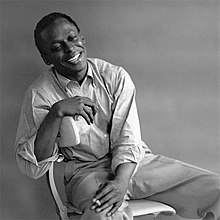Piano Sheets > Miles Davis Sheet Music > Bebop Lives (Boblicity) (ver. 1) Piano Sheet
Bebop Lives (Boblicity) (ver. 1) by Miles Davis - Piano Sheets and Free Sheet Music

About the Song
Getting access to free sheet music for Christmas Christmas is one time when everyone wants to learn how to play the piano. There are so many Christmas carols, hymns and other compositions played. In such a situation, you will find it useful to get free sheet music especially with the Christmas compositions in them.
New age and classical
One of the best advantages about free sheet music is that you can get both classic as well as New Age Christmas musical notes. That means you will be able to play the old time classical compositions, carols etc. and the new artists compositions. The New Age Christmas musical notes are very poignant and lovely and playing these piano notes is sure to stir hearts. One of the drawbacks about New Age Christmas music sheets is that they are very difficult to access. Most New Age albums do not sell too well and hence the demand for these is lesser. In this context, getting access (More...)
Download this sheet!
About the Artist

Random article
Getting access to free sheet music for Christmas Christmas is one time when everyone wants to learn how to play the piano. There are so many Christmas carols, hymns and other compositions played. In such a situation, you will find it useful to get free sheet music especially with the Christmas compositions in them.
New age and classical
One of the best advantages about free sheet music is that you can get both classic as well as New Age Christmas musical notes. That means you will be able to play the old time classical compositions, carols etc. and the new artists compositions. The New Age Christmas musical notes are very poignant and lovely and playing these piano notes is sure to stir hearts. One of the drawbacks about New Age Christmas music sheets is that they are very difficult to access. Most New Age albums do not sell too well and hence the demand for these is lesser. In this context, getting access (More...)
